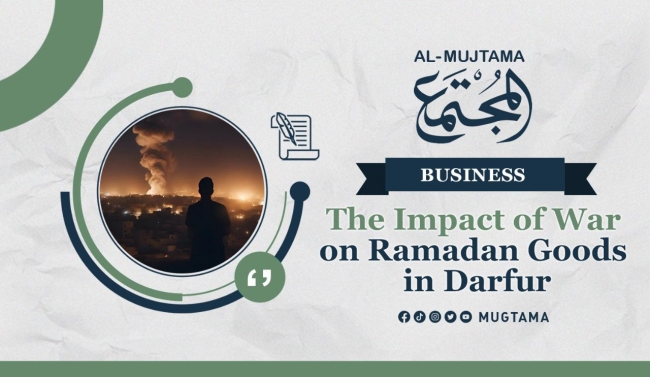Challenges in Delivering Ramadan Goods
This year, the Darfur region in western Sudan is facing difficulties in getting essential foods and agricultural products for Ramadan to different parts of the country. The ongoing war between the army and the Rapid Support Forces has caused chaos since April 15, resulting in many deaths and displacements.
Agricultural Impact
Agriculture in Darfur relies on rain for irrigation, but the war has disrupted farming activities. This has led to a decrease in production and made it harder to distribute crops to other regions of Sudan.
Types of Crops in Darfur
North Darfur produces millet and mariq, while South Darfur grows peanuts, hibiscus, ardib, dum, and baobab. Central and West Darfur focus on vegetables, fruits, lentils, and potatoes.
Missing Foods Due to War
The absence of these crops has affected the local community's nutrition and traditional dishes. Families are struggling to afford Ramadan foods and drinks due to the war's impact on income and poverty levels.
Impact on Farmers
Many farmers in South Darfur have stopped working due to the war, leading to a humanitarian crisis. They need urgent aid to improve their living conditions and alleviate their suffering.
Reasons for Decline
Government employee Al-Sadiq Jumaa Mustafa mentioned that the war, along with other factors like seed distribution issues and looting of agricultural equipment, has contributed to the decline in crop production for Ramadan.
Transportation Issues
Transportation problems have also hindered the delivery of agricultural supplies to other regions of Sudan, affecting the availability of Ramadan foods in many areas.
Struggling to Afford Necessities
Poor economic conditions have led to a shortage of essential foods for Ramadan. Many Sudanese, like journalist Muhammad Suleiman Hamed, have had to cut back on their purchases this year due to financial constraints.
Impact on Displaced People
Displaced individuals like Umm Kulthum from South Darfur are finding it hard to prepare traditional Ramadan drinks and foods. They are hoping for peace and stability to return soon.
Source: Al Jazeera


